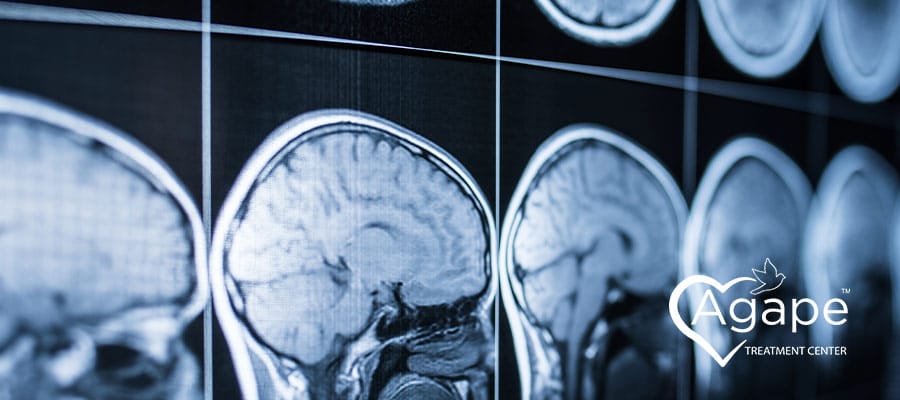Opioids affect the brain by binding to and activating opioid receptors on cells in many different areas of the brain, blocking pain signals sent to the body. These pain-relieving properties are incredibly potent. Opioids are commonly prescribed for pain relief, especially following major surgeries, after traumatic injuries, and for cancer pain.
However, opioids have other, less well-known effects and a high potential for addiction and abuse.
Table of Contents
ToggleWhat are Prescription Opioids?
Prescription opioids are opioids prescribed by doctors to help alleviate pain and discomfort from a variety of causes. These can be naturally occurring, synthetic, or a combination of synthetic and naturally occurring compounds. Fentanyl, morphine, tramadol, oxycodone, and hydrocodone are a few of the most common prescription opioids available.
In addition to prescription opioids, there are also illegal opioids. Illegal opioids including heroin and variants of fentanyl, act in a similar manner to prescription opioids but don’t have medical uses and can’t be legally obtained. Both legal and illegal opioids can lead to addiction and have dangerous effects when misused.
How do Opioids Affect the Brain?
One question many people have is how opiates affect brain function. To start, opioids bind to the same little docking sites – called endorphins – as natural endorphins. Then, receptors are meant to catch chemical messengers called neurotransmitters and activate neurons, or nerve cells, that trigger electrical impulses that travel down neurons.
There are many brain chemistry changes with opiates that cause both the beneficial and harmful effects seen with opioid use. These changes start at the neuron level and can have global impacts on the brain, many of which are difficult and sometimes impossible to reverse fully.
Some examples of the effects are:
- Frontal Lobe Damage: While many of the mechanisms behind opioids are well-known, not every effect is fully understood. One poorly understood effect is damage to the frontal lobe, which is responsible for memory, speech and language, planning, and judgment. Frontal lobe damage can impact any and all of these functions.
- Problems with Impulse Control: Opioids interact with several systems in the brain, including the impulse control circuit. When opioids are used, they can interrupt this circuit, leading to difficulty controlling aggression and decreasing resistance to opioid cravings, further feeding into an addiction.
- Disrupted Reward System: One of the recognized effects of opioids is to cause the excessive release of dopamine, a neurotransmitter involved in regulating pleasure and the brain’s reward system. Over time, it becomes harder for the brain to release dopamine without opioids, reducing the pleasure received from tasks like eating and hobbies. This makes the brain dependent on opioids to feel pleasure, resulting in depression and other signs of an impaired reward system.
Short-Term Effects
Opioid use has both short and long-term effects resulting from both short and long-term use. However, the short-term effects are typically readily reversed and tend to wear off on their own as opioids leave a person’s system.
- Pain Relief: The receptors opioids bind to function heavily in pain regulation and can reduce the perception of pain by blocking pain signals sent to the brain with other parts of the body. These receptors are found both in the brain and in neurons throughout the body, providing widespread relief from most types of pain.
- Suppressed or Stopped Breathing: Opioid receptors can also be found in the area of the brain responsible for controlling breathing. At high enough levels, opioids can cause breathing so slow or shallow that the brain is deprived of oxygen. This can lead to coma, permanent brain damage, and even death.
- Lowered Blood Pressure: Similar to its effects on breathing, opioids can impact the areas of the brain that control blood pressure. This can cause blood pressure to drop, again preventing enough oxygen from reaching the brain. Low blood pressure can lead to dizziness, drowsiness, light-headedness, and even fainting.
- Decreased Conscious Awareness and Reasoning: Another short-term effect of opioids is reduced awareness and reasoning. When combined with breathing difficulties and low blood pressure, this effect can be fatal as a person may not realize they need emergency help.
Long-Term Effects
The long-term effects of opioid use require more time and care to reverse, with some effects being permanent. Furthermore, these long-term effects are often associated with withdrawal and can become more obvious when opioids are discontinued, especially if the user suddenly stops.
- Tolerance: The more opioids bind to opioid receptors, the less sensitive those receptors become to the presence of opioids. This means they require an increasing amount of opioids to have the same effect previously achieved with lower levels.
- Dependence: The brain and body can become dependent on the presence of opioids in their systems. Without the drug, the body goes into physical withdrawal.
- Addiction: The hallmark of opioid addiction is an uncontrolled desire to obtain and use opioids, even at the cost of work, relationships, and overall health and safety. This long-lasting effect is difficult to treat and manage even after opioids have been discontinued.
- Infections: While not typically a direct effect of the opioids themselves, the drug-seeking behaviors associated with opioid addiction can predispose a person to heart and lung infections. Intravenous drug use can lead to infective endocarditis by introducing bacteria into the bloodstream from contaminated needles, while opioids’ interference with immune function can impair the lungs’ ability to keep bacteria and viruses out.
Treatment for Opiate Addiction
The most effective treatments for opiate addiction use a combination of medical management and behavioral therapy.
Medications can help minimize withdrawal symptoms, allowing the opioid affecting the brain to leave a person’s system so they can begin other treatments. Behavioral therapy addresses the psychosocial aspect of addiction, including stress and other triggers, to help minimize the likelihood of relapse.
Finding the right treatment center can make a huge impact on treatment success. Treatment for any drug addiction is a process, and treatment centers that offer a variety of services, like the ones provided at Agape Treatment Center, can help every step of the way. If you’re ready to get help for your opiate addiction, reach out to us today to begin your journey to recovery.

Stephanie Catalano is an accomplished Clinical Director at Agape Behavioral Healthcare. With a Master of Social Work degree, LCSW license, and extensive training in Rapid Resolution Therapy under her belt, she brings a wealth of expertise to her role. Her unique combination of education and experience allows her to provide exceptional care to clients and lead her team with confidence. Stephanie’s joy comes from witnessing the moments when her patients creatively connect the dots and bravely move toward reclaiming their power. Her purpose is to help individuals understand their past so they can create a future full of hope, growth, and success. Stephanie attributes a large portion of her success to the supportive culture and strong sense of community fostered by the Agape team.







